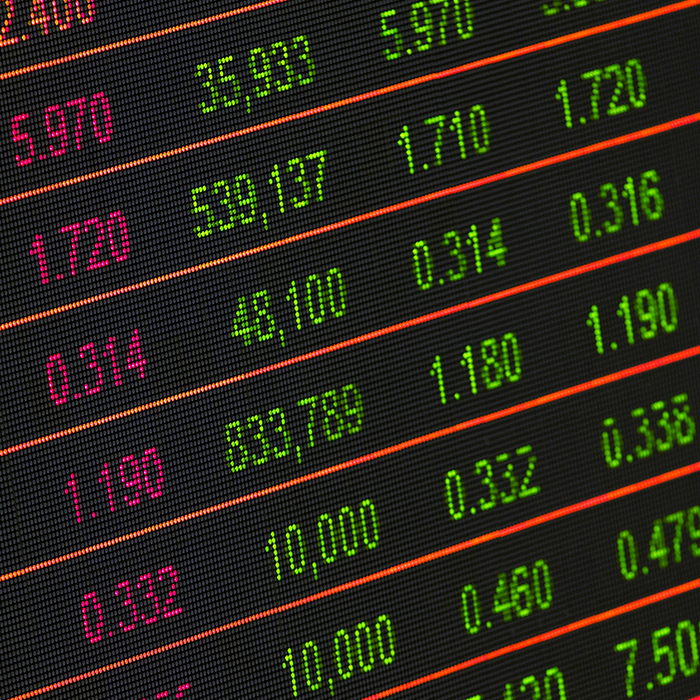
In the ever-changing world of financial markets, gold has always been a reliable symbol of stability, a go-to when economic uncertainties arise.
As we usher in the new year, gold prices have continued to push to new highs in dollar terms, thanks to a medley of global economic factors at play. What’s particularly noteworthy is the anticipation surrounding interest rate movements in 2024, significantly shaping how investors feel and boosting demand for the precious metal.
Examining the past 5, 10 and 15 years, the gold price in GBP has experienced robust growth – 59%, 110% and 184%, respectively. A parallel trend is observed in the strength of the US dollar, yielding a more modest 148% gain in the gold price in USD over the 15-year period.[1] Fast forward to 2024, and we’re witnessing gold prices breaking previous records and generating volumes of interest from investors and analysts alike.
Gold, known traditionally as a safe-haven asset, tends to thrive during economic instability, geopolitical tensions and inflationary periods. It’s interesting to note that, despite facing the headwind of higher interest rates in the last 18 months, this unique blend of factors has propelled gold to new and unprecedented heights.
2024 Interest Rate Expectations
One of the primary drivers behind the recent move into new highs is the widespread anticipation of interest rate movements in 2024. Central banks play a crucial role in determining interest rates, and their decisions have a profound impact on various asset classes, including precious metals.
The prevailing sentiment is that central banks, particularly major ones like the Federal Reserve, are becoming more likely to reduce interest rates in the short term. This accommodative monetary policy is designed to support economic recovery and avert a ‘hard landing’.
When interest rates are low, the opportunity cost of holding non-interest-bearing assets like gold diminishes. Investors are less incentivised to park their funds in interest-bearing assets when yields are meagre, making gold more appealing.
Read more about this in our previous article here.
Inflation Hedge
Gold is often seen as a hedge against inflation. Constraints on new gold supply ensures its value tracks higher with general prices (inflation), protecting the purchasing power of money. With central banks potentially aiming for more flexible and moderately higher inflation targets, investors may turn to gold as a store of value to protect their wealth against the eroding effects of rising prices.[2]
Weakened Currency
Lower interest rates, relative to other major economies, can lead to a weaker domestic currency. As investors seek alternative stores of value, gold becomes an attractive option, especially for those looking to diversify their portfolios and protect against potential currency devaluation.
Currency weakness can be brought about by poor government and economic management, and investors’ views on the prevailing government and its policy measures. This is particularly pertinent as the 2024 calendar will see over half the world’s population come to the polls. It marks only the third time in history that the United States and the United Kingdom will decide on their leadership during the same calendar year.[3]
Short-Term Performance
Given the current economic climate and interest rate expectations for 2024, the short-term outlook for gold remains positive. Investors are likely to continue flocking to gold as a safe-haven asset, driving prices even higher.
Additionally, the potential for increased market volatility and geopolitical tensions further supports the short-term bullish trend for gold. For further insight, please see our 2024 Gold Outlook.
In Conclusion
The surge in gold prices to all-time highs in 2024 is a testament to the metal’s enduring appeal as a safe-haven asset. The prevailing expectations of lower interest rates, coupled with economic uncertainties, have seemingly created a favourable environment for gold investors.
Whilst short-term performance remains robust, it’s essential for investors to monitor global economic developments, central bank policies and geopolitical events to navigate the evolving landscape of gold prices in the coming months.
Figures accurate at date of publication: 12th January 2024
References
[1] - https://www.royalmint.com/gold-price/
[2] - 'Central Banks May Choose to Tolerate Inflation... | Morningstar
[3] - The BFPG’s 2024 Foreign Policy Calendar - British Foreign Policy Group
Notes:
The contents of this article are accurate at the time of publishing, are for general information purposes only, and do not constitute investment, legal, tax, or any other advice. Before making any investment or financial decision, you may wish to seek advice from your financial, legal, tax and/or accounting advisers.









